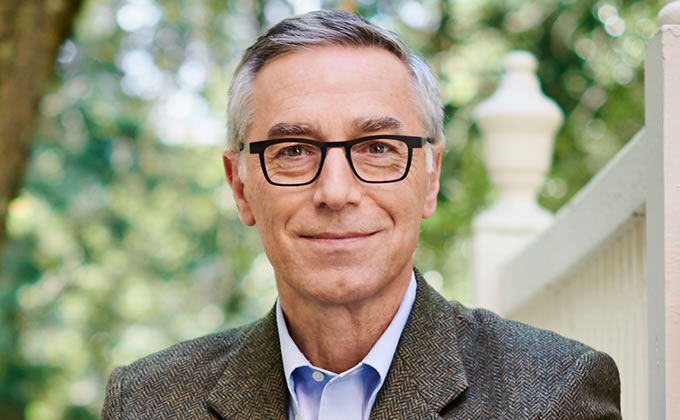
Richard M. Locke is provost of Brown University and Schreiber Family Professor of Political Science and International and Public Affairs. At the time of his appointment as provost in July 2015, Locke served as the Howard R. Swearer Director of the Watson Institute for International and Public Affairs at Brown.
Locke is an internationally respected scholar and authority on international labor relations and worker rights, comparative political economy and corporate responsibility. He has published five books and numerous articles on economic development, labor relations and corporate responsibility. For his ongoing research on fair and safe working conditions in global supply chains, Locke was awarded with an inaugural Progress Medal for Scholarship and Leadership on Fairness and Well-being by the Society for Progress in 2016, and was named the 2005 Faculty Pioneer in Academic Leadership by the Aspen Institute.
Prior to joining the Brown community, Locke served for 25 years on the faculty at MIT, holding the Alvin J. Siteman Chair in Entrepreneurship and later the Class of 1922 Chair in Political Science and Management. Locke pioneered the Global Entrepreneurship Laboratory at MIT’s Sloan School of Management in 2000, for which he received the MIT Class of 1960 Teaching Innovation Award in 2007 and the Jamieson Prize for Excellence in Teaching in June 2008. He also served as chair of the MIT Political Science Department and deputy dean in the Sloan School of Management.
Locke earned his Bachelor of Arts from Wesleyan University, a Master of Arts in education at the University of Chicago, and a Ph.D. in political science, with a specialty in political economy, at MIT. He has held visiting faculty positions in Italy, Germany, the United Kingdom, and Brazil and has received fellowships from the German Marshall Fund, the Social Science Research Council, the Hewlett Foundation, and the Sloan Foundation. He is a member of the Council on Foreign Relations, the ILO-IFC Better Work Program Advisory Committee, and from 2013-2016, he served as chair of the Apple Academic Advisory Board, a group of independent academics who worked with Apple to improve labor conditions among the company’s suppliers.
